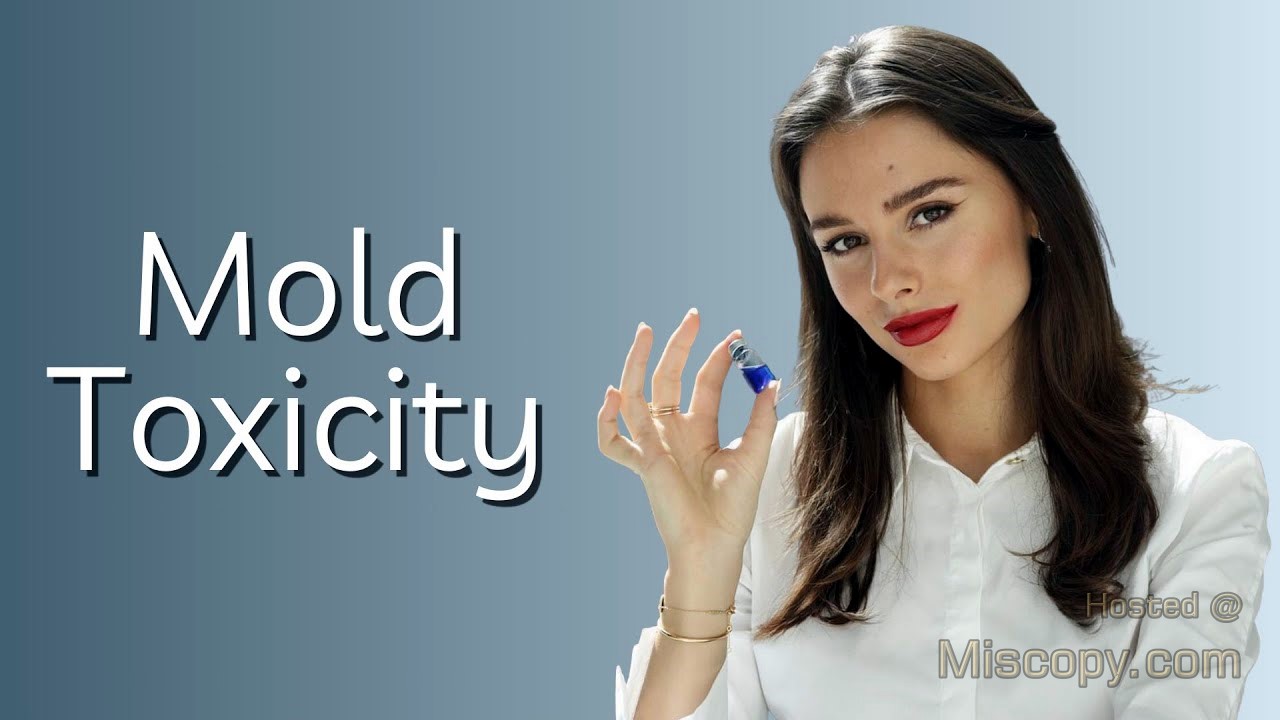In the YouTube video “Mold Expert Explains The Hidden Health Crisis Inside Your Home,” mold expert Jessica Alana discusses the challenges of diagnosing and treating mold toxicity, which presents non-specific symptoms that can be easily overlooked or misdiagnosed.
Symptoms may vary greatly among individuals and can include gut issues, skin problems, cognitive impairment, and other conditions. Some research suggests that people with mold illness may have low levels of important neuroregulatory peptides such as alpha-msH and VIP.
Around one in five people carry the human leukocyte antigen (HLA) gene, which, when combined with mold exposure, can predispose them to severe and prolonged inflammation. The constant activation of the immune system from the interaction between the HLA mutation and mold toxins can cause various health issues.
Mold can also affect the gut, as it induces intestinal permeability and causes an autoimmune reaction that precipitates an influx of endotoxins and inflammatory lipopolysaccharides. To effectively address mold-related health concerns, a three-phase approach is recommended: anti-inflammation, use of antifungals and binders, and rebooting the immune system and vagus nerve.
For those with the HLA gene mutation, testing for it can be done through LabCor or other labs in the US. Creating a mold-free environment through remediation is ultimately the best solution. Meanwhile, minimizing exposure through the use of air filters and addressing gut health issues are suggested ways to manage mold-related symptoms.
Peptides, which are well-organized amino acids, can help the body become more conductive to healing during mold exposure. Injecting some peptides, like SRF, allows them to enter the bloodstream more effectively. Using alternative methods, such as sweating through the use of a sauna, can also help excrete various toxins, including mycotoxins.
Detailed Description
A mold expert Jessica Alana discusses the challenges of identifying and treating mold toxicity. She explains that symptoms can be non-specific and vary greatly from person to person. Traditional methods of addressing gut issues, brain fog, and other health problems may not be effective for those with mold toxicity. Alpha-msH and VIP are important neuroregulatory peptides in the brain, and some research suggests that people with mold illness may have low levels of these markers.
However, Jess notes that manifestations of mold toxicity can differ greatly, and not everyone fits neatly into this diagnostic category. Additionally, she emphasizes that mold toxicity is highly misdiagnosed, with one in five people carrying the human leukocyte antigen gene that can predispose them to mold sensitivity. Symptoms of mold toxicity can include gut issues, skin problems, cognitive impairment, and other conditions, and may be overlooked or incorrectly diagnosed.
Jessica Alana then discusses the relevance of the HLA gene (specifically the human leukocyte antigen gene) to mold illness. Approximately one in five people have a defect in this gene, which makes them more susceptible to chronic health issues when exposed to mold. When they come into contact with a biotoxin, their innate immune system stays constantly activated, leading to strong and prolonged inflammation. This can cause various health problems, including hormonal issues and thyroid problems.
She notes that other factors, such as metabolic issues or exposure to heavy metals and endocrine disrupting chemicals, can also contribute to chronic problems. The primary cause, however, is the interaction between the HLA mutation and the mold toxins (mot toxins). These toxins inhibit the SRP (Signal Recognition Particle) loop of the mitochondria and endoplasmic reticulum, preventing the correct translation of proteins and inducing a metabolic imbalance.
To detox from mold, a three-phase approach is recommended: anti-inflammation, use of antifungals and binders, and rebooting the immune system and vagus nerve. The HLA gene can be tested for through LabCor or other appropriate labs in the USA. Mold can also affect the gut by inducing intestinal permeability and causing an autoimmune reaction, resulting in an influx of endotoxins and inflammatory lipopolysaccharides.
Jessica Alana also discusses how mold can induce an inflammatory environment in the gut, allowing for the growth of pathogenic bacteria and setting up conditions for health issues like IBS, IBD, and candida overgrowth. She emphasizes that addressing mold may be the root cause of these bacterial problems, rather than directly targeting bacteria through antibiotics or probiotics. The speaker also mentions the use of urinary microtoxin tests to identify mold exposure, but notes that individual test results and symptoms should be considered before deciding on treatment options. The urine test may not be the best indicator of the amount of mold toxins in the body, so other factors should be taken into account.
The misconception that urinary presence of mycotoxins is the best indicator of mold affecting one’s health is lso discussed. She argues that test results may not reflect actual tissue damage and highlights water-damaged buildings as the most common source of mold. The expert mentions that mold starts growing in buildings within 48 hours of water exposure, often in basements and cool spaces, and humidity plays a significant role in mold growth.
She suggests keeping the humidity below 45% to prevent mold and emphasizes the importance of remediation if mold colonization is significant, although using air filters can help mitigate the issue for some families. The expert also mentions the possibility of testing a house for the air presence of mycotoxins using an I test, which measures all the particles in the air and gives a score, with anything above 10 being considered moldy and above 16 as extremely moldy. The accessibility and ease of obtaining this test are not discussed in the excerpt.
While tests for mold are easily accessible in the US, Jessica Alana recommends using air filters, keeping windows open, and avoiding constant exposure until remediation is possible. Regarding air filters, they suggest using HEPA filters but not ozone filters due to health concerns. The expert also recommends certain supplements and peptides for treating mold illness, highlighting sodium butyrate, phospholipids, RG3 nasal spray, colostrum, and choline derivatives like butyrate.
They also mention Berberine as important for gut health and fueling the immune system. The expert expresses concerns about the misuse of probiotics, noting that people with SIBO (Small Intestine Bacterial Overgrowth) may still take them daily, and there may not be enough specificity or regulation in probiotic products. Overall, remediation is the best solution, and until then, minimizing exposure and using air filters, supplements, and emotional support are suggested ways to manage mold-related health issues.
She further discusses the use of peptides to aid in the detoxification process during mold exposure. Peptides are essentially well-organized amino acids that can help the body become more conductive to healing. Contrary to popular misconceptions, they are generally safe and have a low risk profile. While oral use of peptides like BPC is marketed for consumerism, injecting them allows the peptides to enter the bloodstream more effectively, reaching the peptide receptor on the cell membrane and activating intracellular signaling for regeneration.
Although some peptides, such as L-ratiute, can be taken orally, the expert emphasizes that for most peptides, injection is the recommended method to ensure optimal results. In response to a question about alternative methods for detoxification, the expert mentions that sweating, including through the use of a sauna, can help excrete various toxins, including mycotoxins.
At the end, Jessica Alana discusses the connection between mold and the gut, focusing on the importance of allowing bile flow to work effectively in the body for the excretion of mycotoxins through stool. She explains that some clients have experienced sluggish bile and constipation during detoxification, requiring a pause to address this issue before continuing. Jess emphasizes that mold’s impact on the gut is significant and to extend beyond that, affecting various systems including the liver and bladder, which are essential to overall health. She encourages people to find her content and consulting services, which could be helpful for those dealing with mold-related issues.






